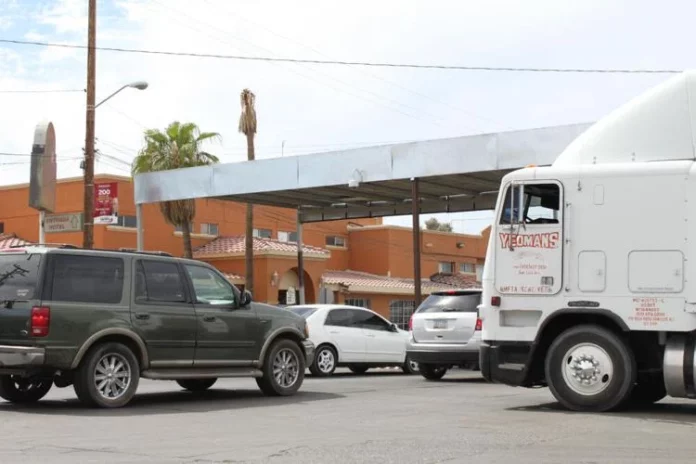
Arizona’s border port authorities issued a joint resolution Monday emphasizing the need for border security to sustain economic growth in the region.
The resolution came from the Douglas International Port Authority, the Greater Nogales and Santa Cruz County Port Authority, and the Greater Yuma Port Authority, with specific ideas during their Board of Directors joint session in Tucson.
The group is asking for a “pilot program to promote local hiring of sworn officers” and other staff at ports of entry, as well as asking Customs and Border Protection to “streamline” its recruitment process, according to the resolution.
In addition, infrastructure is a priority for the group. They are calling on the federal government to “create a priority funding program” for projects along the border in order to foster “safe and efficient operation” at ports of entry.
Arizona’s border port authorities are joining a chorus of voices that are pressuring the federal government to take more stringent action at the border. This comes as the Department of Homeland Security issued a directive to close some lanes at ports of entry to enable more CBP authorities to assist Border Patrol efforts.
Jaime Chamberlain, chairman of the Greater Nogales Santa Cruz County Port Authority, wrote in a letter on Sept. 15 to Homeland Security Secretary Alejandro Mayorkas that the lower-than-needed presence at certain posts from federal authorities is a national security risk.
“Mr. Secretary, we request the immediate repeal of this directive and return Customs personnel to the posts where they are most effective – the ports of entry,” Chamberlain wrote. “We don’t want another 9/11 tragedy to occur because our ports are vulnerable and weak with low staffing numbers because of this directive to help Border Patrol. Washington and DHS are doing a disservice to both organizations by not properly staffing or funding them to the best our abilities.”
Douglas Mayor Donald C. Huish wrote on Sept. 14 that the policy could have serious consequences for his city.
“The function of the port does not go away, but this mandate forces our local CBP personnel to do their job with far fewer personnel. This is simply not sustainable, yet the cost to Douglas and to our nation is unmeasurable,” he wrote. “We request the immediate reversal of this policy and ask that CBP personnel remain where they are most productive and effective in protecting the homeland, facilitating the flow of trade, and enabling tourists to be welcomed into our community and our nation in a professional manner.”
Huish told The Center Square that wait times are now upwards of an hour and a half at the port of entry in Douglas.
Meanwhile, San Luis Mayor Nieves Riedel referred to the move to close lanes as “simply unacceptable.”
“For months, we have been asking the administration to provide additional resources to the border to support efforts to handle, in a humane manner, the growing influx of migrants,” Riedel wrote on Sept. 15 to Mayorkas. “The radical solution of shutting down lanes at the ports of entry, that are essential to tourism, trade, and national security, is an irrational and irresponsible response to the situation.”
On the federal level, Congressman Juan Ciscomani addressed the staffing concerns in his message to the secretary on Sept. 13.
“Our CBP officers and agents on the front lines are doing all they are allowed to under your direction, but they are overburdened and under supported. You must do what’s necessary to stop the flow, and the current status-quo cannot stand,” he wrote.
Since the start of fiscal year 2023, there have been 273,876 migrant encounters in the Tucson sector of the border and 161,534 encounters in the Yuma sector, according to CBP data.
Republished with the permission of The Center Square.













